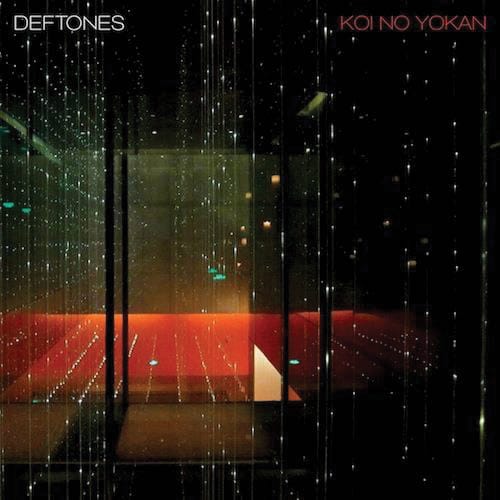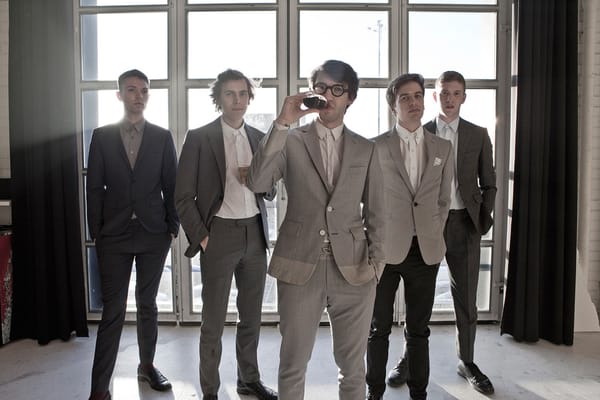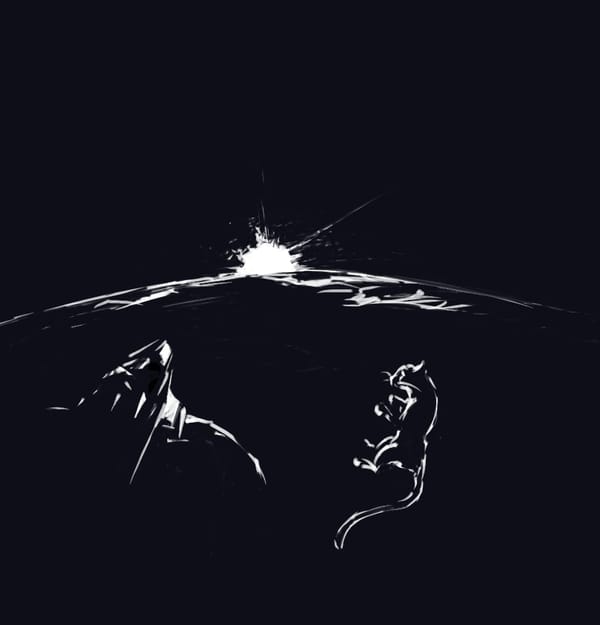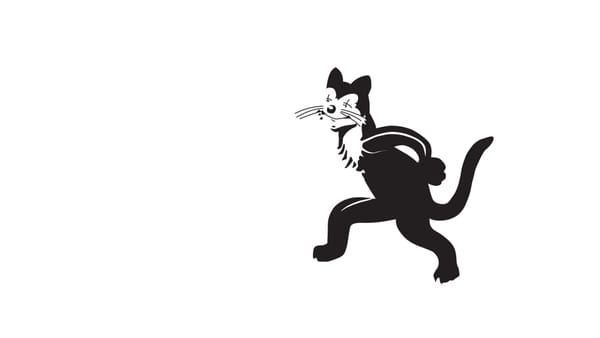Neurosis in conversation
Riaz Agahi talks to Scott Kelly about Neurosis and his solo work
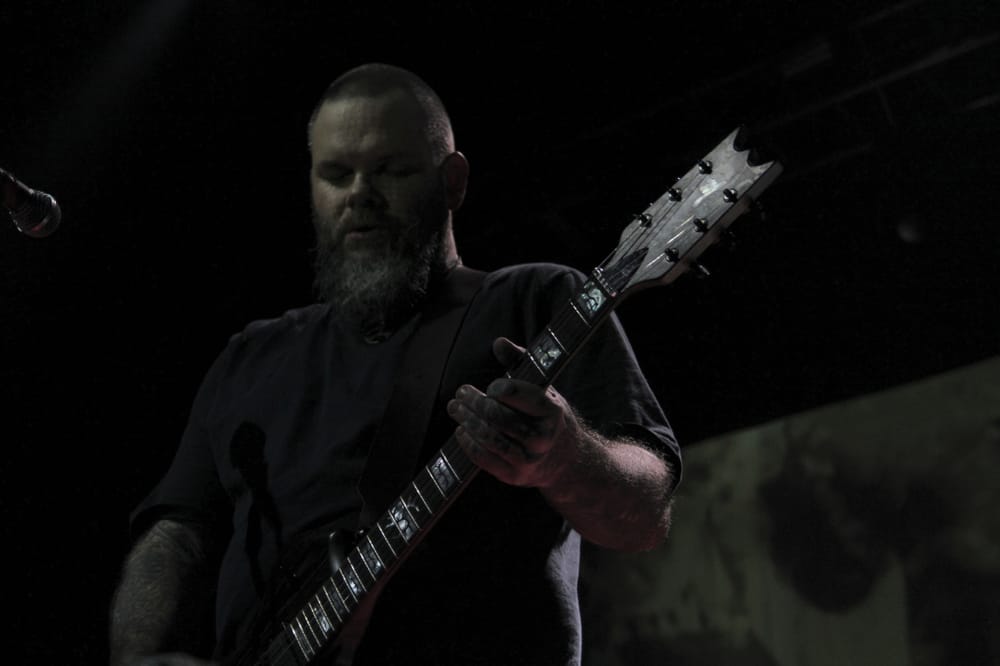
One of the most influential bands out there, progressive sludge outfit Neurosis have left their mark on the metal scene and anyone who’s seen their live performance. After seeing an impressive show of theirs at ATP,I was able to speak to Scott Kelly of Neurosis about Neurosis’ decision to remove visuals from their live set, his solo project and the post metal scene.
RA: The most striking question I think is about the changes to your live set. What in particular led you to think it was time for a change?
SK: I dunno, it’s one of those things. It was really a mutual thing and we just reached a point where we didn’t really feel inspired to have visuals anymore and Josh really feel like doing them anymore, he didn’t want to be a projectionist I think he wants to focus on his band It was pretty obvious when we talked that it was meant to be because we were feeling this way and we talked to him, he felt the same way. We wanted to do something different, we wanted to take it back to where we were 20 years ago and just kind of revisit the whole idea. I’m not sure whether we’re gonna go back to doing visuals or not, we’ll see. We’re just kind of starting at zero and seeing what it brings us and it actually was good to get out and do it.
RA: Personally I felt that a more stripped down visual package allowed more focus on the sound.
SK: Yeah, that’s the thing, I think that at a certain point the music kind of does its own sorting out of things and that’s pretty much what happened.
RA: It seems like the market’s pretty saturated for projections right now which wasn’t really the case when you started, so it almost seems more original not to include them.
SK: Without a doubt. There’s an enormous amount of bands that are doing projections now. It’s become much easier to do it. That definitely was in the conversation at some point.
RA: Something else that kind of struck me about the live experience was the more prominent use of drone and noise, especially between tracks.
SK: That’s the way we’ve done it, it’s no different actually.
RA: The thing about it was that it seemed more experimental and was nice to hear something done differently from the record
SK: Yeah, I like it too. It keeps things, like you said more experimental and it keeps things flowing and it never stops, that’s the basic point.
RA: One of the big things Neurosis are known for is not talking to the audience during sets. What are the reasons behind this?
SK: At my solo gigs I deal with the audience a lot, with Neurosis gigs the idea is definitely it starts and it continues until it’s over and there’s never a moment when there’s not something happening sonically.
RA: You mentioned your solo project. I was surprised how different the album was from Neurosis, especially in terms of lyrics. Do you feel it’s a way of almost catharsis for another aspect of your personality?
SK: It is for sure. It’s something that’s kind of developed over the years as I’ve been working on it. For me, music or any kind of creative process is kind of an act of submitting to whatever will become of the songs and you don’t really try to guide them as much as you let them guide you. So I don’t really question the lyrical content. I question more the melody and the sound of things. The acoustic music just tends to bring this whole other aspect of who I am and my experience to light.
RA: Was there any change of approach with Honor Found In Decay?
SK: Not really, I mean, we always look to let the music write itself. It takes its time. I think that we were focusing on our dynamics quite a lot on this record and trying to create more extreme dynamics within our sound, just basically get better at what we do. The recording process itself was the same as we’ve had for the past 5 records with Steve Albini in his studio. Same time frame, same place same engineer. That’s remained the same and probably will for a while. That’s something that really works for us.
RA: With Neurosis, you write lyrics that are primal yet quite inward looking and deep, what inspires the content and what sort of process do you through writing them?
SK: Yeah I mean it’s pretty much open to your interpretation. We’re definitely not sitting down with a message or a vision for what the lyrics should contain or what we should be imparting to people. We kind of just trust the spirit of the whole thing, we just believe that the words that should be there will be there. It’s not that we don’t spend hours working on them, we do. It takes a while to get things to that point but it’s hard to say ‘it’s about this or that.’ Typically, it starts off with a tone or melody of sorts where I’ll hear the words or what they should sound like and then I’ll just deciphering and then I just go through that process a number of times until I feel it’s at the point where they should be. That’s basically it; it takes as long as it takes. I write words all the time but not in that way. Sometimes I’ll just sit down and words will just come out of the pen and sometimes they work. But typically it’s because I’ve heard this sound in my head of what the lyrics should sound like and the cadence and the rhythm and the melody.
RA: Something that’s struck me in the metal community is the situation with hydra head shutting down. Because Neurosis can be similar to Isis and you run your own label, I was wondering what your reaction was.
SK: It’s a shame man, total fucking shame, it’s really sad that that happened. I know they’re struggling to keep it afloat now and they’re hoping to keep their back catalogue in print. I hope that they can figure out a way to do that. Times are tough, they’re tough on everything, and they’re tough in the music industry. I was pretty shocked; I didn’t see that one coming. Amazing amount of great records that they put out
RA: How do you view the post-metal/metalgaze that came as a result of you guys and to some extent Isis?
SK: Just like any other kind of music, some of it I like and most of it I don’t like. Some bands do it very well and some of it’s very emotionally honest and intense and most of it just weak. That’s the way with most music or art or whatever. That’s just my two cents on it. Obviously I’m drawn to dark, strange sounds so a lot of that stuff I think is really good.
RA: It seemed to me that many bands were somewhat imitating it without adding much to what you or Isis laid down, perhaps Pelican deserve some credit too…
SK: Agreed, I think Godflesh should probably be thrown in there somewhere or at least Justin and his various projects. Such is the way of the human being and who knows what these artists will grow up to be some day? Typically your first effort is not your best. If we were to be judged on the bands we were doing when we were kids people wouldn’t give a shit whatsoever. My first band sounded like Discharge and my second band sounded like D.R.I. Not very inspiring to anyone. It took a lot of time and work and rethinking the process and happening to connect with the right guys at the right time in the right place. All sorts of things come into play
RA: I think it’s interesting to see how Neurosis’ sound progressed in the early albums, starting out completely punk, but in the next record there were already elements of what was coming and on Souls At Zero you can still hear the punk. It’s interesting how you can hear it developing and being honed.
SK: Yeah, I mean it was in our heads it just took us time to get there.
RA: Have you got an album of the year?
SK: I don’t know if I do, honestly. I do really love that new Converge record. I think I would have to go with the new Swans record, I really like that record a lot. I could pretty much say that every year they put out a record. ..I don’t think I’m really turning anyone onto anything new with those two recommendations but there’s a reason that those bands are doing well in the underground, it’s because they’re fucking good and they do real honest emotional music.
Scott Kelly is currently touring Europe with his acoustic solo project.

